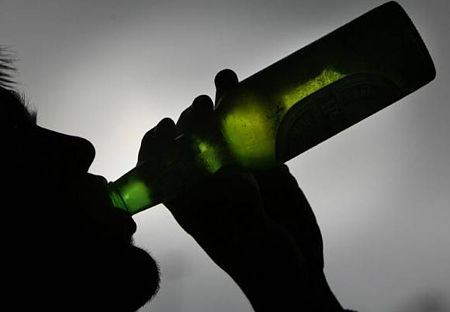Not only are more intelligent individuals more likely to consume more alcohol more frequently, they are more likely to engage in binge drinking and to get drunk.
In an earlier post, I show that, consistent with the prediction of the Hypothesis, more intelligent individuals consume larger quantities of alcohol more frequently than less intelligent individuals. The data presented in the post come from the National Child Development Study in the United Kingdom. The NCDS measures the respondents’ general intelligence before the age of 16, and then tracks the quantity and frequency of alcohol consumption throughout their adulthood in their 20s, 30s, and 40s.
The graph presented in the post show a clear monotonic association between childhood general intelligence and both the frequency and the quantity of adult alcohol consumption. The more intelligent they are in childhood, the more and the more frequently they consume alcohol in their adulthood.
There are occasional medical reports and scientific studies which tout the health benefits of mild alcohol consumption, such as drinking a glass of red wine with dinner every night. So it may be tempting to conclude that more intelligent individuals are more likely to engage in such mild alcohol consumption than less intelligent individuals, and the positive association between childhood general intelligence and adult alcohol consumption reflects such mild, and thus healthy and beneficial, alcohol consumption.
Unfortunately for the intelligent individuals, this is not the case. More intelligent children are more likely to grow up to engage in binge drinking (consuming five or more units of alcohol in one sitting) and getting drunk.
The National Longitudinal Study of Adolescent Health (Add Health) asks its respondents specific questions about binge drinking and getting drunk. For binge drinking, Add Health asks: “During the past 12 months, on how many days did you drink five or more drinks in a row?” For getting drunk, it asks: “During the past 12 months, on how many days have you been drunk or very high on alcohol?” For both questions, the respondents can answer on a six-point ordinal scale: 0 = none, 1 = 1 or 2 days in the past 12 months, 2 = once a month or less (3 to 12 times in the past 12 months), 3 = 2 or 3 days a month, 4 = 1 or 2 days a week, 5 = 3 to 5 days a week, 6 = every day or almost every day.
As you can see in the graph, there is a clear monotonic positive association between childhood intelligence and adult frequency of binge drinking. “Very dull” Add Health respondents (with childhood IQ < 75) engage in binge drinking less than once a year. In sharp contrast, “very bright” Add Health respondents (with childhood IQ > 125) engage in binge drinking roughly once every other month.
Fuente: www.psychologytoday.com
